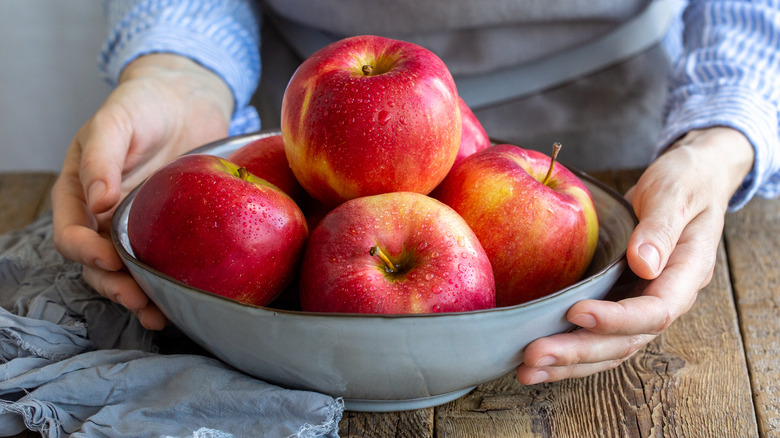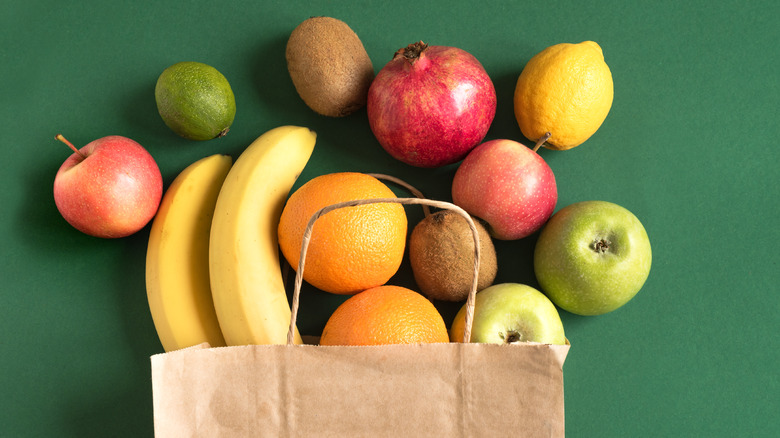Need To Ripen Fruit Fast? Store It With An Apple
Anyone who has tasted a perfectly ripened fruit knows what a difference it makes in the quality. So how can you speed the process along naturally if you need to ripen fruit faster?
Storing it next to apples is one means of helping other fruits ripen quicker, but it's a delicate balancing act. Apples, much like bananas, mangoes, pears, and peaches, produce the hydrocarbon gas ethylene, which when released can hasten ripening, according to Science Focus.
As NPR reported, early civilizations in Egypt and China knew about ethylene's ability to speed up the ripening process and used it for the maturation of certain fruits. You can apply these same basic principles in your home's kitchen. HealthiNation explains that getting your fruit to ripen quicker means "understanding the chemistry happening inside your produce." Apples trigger high amounts of ethylene when they ripen, therefore they can impact fruits stored in their vicinity.
As the familiar expression goes, "one bad apple spoils the lot," which in literal terms refers to ethylene's ability to cause decay and produce overripe, mushy fruit. Since there is a science behind ripening fruit, employing the apple approach involves timing and must only be done with certain fruits to achieve the desired ripening effect.
The paper bag method
Hungry Harvest recommends the paper bag method for ripening avocados, plums, and tomatoes. It simply requires sealing the under-ripe fruit in a paper bag, adding an apple, and letting the ethylene from the apple work its ripening magic. Of course, already ripe fruits placed next to significant ethylene producers could cause them to go bad quickly, so make sure you use a discerning eye to determine precisely where your fruit falls in the ripening stage.
According to Livestrong, there are also certain kinds of "ethylene-sensitive produce" that should never be stored next to apples. These include grapes, watermelon, cantaloupe, lemons, and limes.
It's also important to remember that certain types of apples, most notably McIntosh, produce large amounts of ethylene even when compared to other apple varieties, as the University of Maine points out. In general, you may want to avoid storing other fruits around these apples. Yet when applied in the right circumstances to the appropriate fruits, apples can deliver the ripening boost you need.

